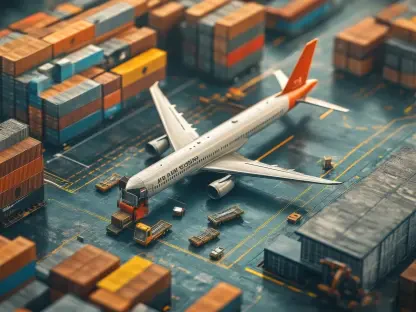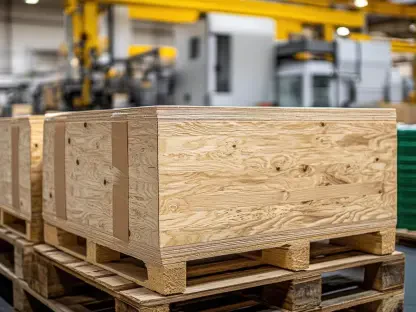Canada Post is undertaking a revolutionary effort to transform parcel delivery by exploring the implementation of cutting-edge technologies, specifically drones and artificial intelligence (AI). The motivation behind this bold move is the rising consumer demand for faster, more efficient service in the rapidly advancing world of e-commerce. This initiative is poised to significantly alter the postal service landscape, positioning Canada Post as a leader in technological adoption within the logistics industry. The integration of such sophisticated technologies is anticipated to streamline operations, reduce delivery times, and enhance overall customer satisfaction, responding to the growing pressures of modern-day consumer expectations.
By leveraging drones and AI, Canada Post aims to establish new benchmarks in logistics services, ensuring that parcels reach their destinations more quickly and accurately than ever before. The use of drones promises to address the challenges posed by traditional delivery methods, including traffic congestion and geographical barriers. On the other hand, AI will provide unprecedented capabilities in route planning, parcel tracking, and predictive analysis, facilitating more informed decision-making and resource optimization. Together, these advancements are set to propel Canada Post into a new era of efficiency and sustainability, showcasing the potential of technology to transform conventional postal services.
Drone Delivery: A Game Changer
Central to Canada Post’s innovation strategy is the introduction of drone technology for parcel delivery. This aerial advancement offers an efficient alternative to traditional delivery methods, which often grapple with traffic congestion and geographic limitations. Drones have the potential to dramatically reduce delivery times by flying directly to destinations, thus bypassing urban traffic and reaching remote or rural areas more effectively. The agility and speed of drones present a unique solution to logistical challenges, making them an ideal choice for enhancing the efficiency of parcel delivery services.
Drones enhance delivery speed and accuracy, capable of navigating over congested streets to deliver parcels swiftly. Their ability to access remote locations ensures consistent service across the expansive Canadian landscape. By lowering the reliance on fuel-powered vehicles, drones contribute to reducing carbon emissions. They exemplify an eco-friendly alternative that aligns with the growing emphasis on sustainability in the logistics sector. The deployment of drones not only promises operational efficiency but also signifies a commitment to environmentally responsible practices, addressing the dual imperatives of technological advancement and ecological stewardship.
However, the implementation of drones is not without its challenges. Regulatory constraints and weather conditions remain significant hurdles that need to be addressed for widespread adoption. Despite these issues, the potential benefits of drone delivery, including operational efficiency and environmental sustainability, present a compelling case for their integration into postal services. Rigorous testing and regulatory approvals are essential steps in ensuring the safe and effective deployment of drone technology, paving the way for a more innovative and resilient postal service infrastructure.
The Role of AI in Enhancing Logistics Solutions
Alongside drones, AI is set to play an integral role in modernizing Canada Post’s logistics processes. AI’s capabilities extend to optimizing route planning, improving parcel tracking, and providing real-time updates, all of which contribute to a superior customer experience. By harnessing AI, Canada Post can achieve greater precision and efficiency in its delivery operations, responding adeptly to the complexities of contemporary logistics challenges.
AI algorithms determine the most efficient delivery paths, saving time and reducing operational costs. Enhanced tracking capabilities offer customers greater transparency and accurate delivery estimates. AI facilitates better operational efficiency by predicting demand patterns and optimizing resource allocation. By integrating AI into its logistics framework, Canada Post aims to elevate the reliability and predictability of its services, ensuring that parcels are delivered with greater timeliness and accuracy, thus enhancing overall customer satisfaction.
The adaptation of AI in logistics reflects a broader trend towards digital transformation within the industry. By leveraging AI, Canada Post aims to set new benchmarks in transparency, reliability, and customer satisfaction. The application of AI-driven insights enables more informed decision-making, supporting proactive management of logistics operations. As the demand for e-commerce continues to surge, AI technology will increasingly play a pivotal role in addressing the dynamic needs of the logistics sector, driving continuous improvement and innovation in parcel delivery services.
Sustainability and Future Trends
The pursuit of drone and AI technologies aligns with a global push towards sustainability. The logistics industry is increasingly focused on minimizing environmental impact, and Canada Post is no exception. By reducing dependency on fuel-intensive delivery trucks, drones can help cut down carbon emissions. Moreover, AI-driven optimizations contribute to more efficient resource utilization, further supporting eco-friendly practices. The integration of these technologies underscores Canada Post’s commitment to sustainability, reflecting a conscientious approach to modern logistics.
Utilizing drones lessens the reliance on fossil fuel-powered vehicles. This move aligns with international sustainability goals and climate change initiatives. Canada Post’s adoption of these technologies epitomizes eco-friendly trends within logistics. The implementation of AI for route planning and predictive analysis further enhances the efficiency of resource allocation, minimizing waste and reducing the environmental footprint of delivery operations. Through these efforts, Canada Post is actively contributing to global environmental goals, positioning itself as a pioneer in sustainable logistics solutions.
The integration of drones and AI underscores Canada Post’s commitment to sustainability and innovation. These technological advancements not only promise to enhance operational efficiency but also support global environmental efforts. By embracing these cutting-edge technologies, Canada Post is setting new standards in the logistics industry, demonstrating the potential for innovation to drive both performance improvements and environmental stewardship. Looking to the future, the continued evolution and refinement of drone and AI applications in parcel delivery will shape the trajectory of the logistics sector, fostering a more sustainable and technologically sophisticated landscape.
Conclusion
Canada Post is making a bold move to revolutionize parcel delivery by adopting advanced technologies like drones and artificial intelligence (AI). This modernization effort is driven by the increasing consumer demand for quicker and more efficient service in the fast-paced e-commerce world. These technological upgrades aim to not only streamline postal operations but also reduce delivery times and boost overall customer satisfaction, positioning Canada Post as a leader in the logistics industry.
Through the use of drones, Canada Post hopes to bypass traditional delivery challenges like traffic congestion and difficult geographical areas, ensuring faster and more reliable deliveries. AI, on the other hand, will enhance route planning, parcel tracking, and predictive analysis, offering valuable insights for better decision-making and efficient resource management. This combination of drones and AI is set to launch Canada Post into a new era of logistic services, showcasing how technology can revolutionize conventional postal operations. This initiative not only meets modern-day consumer expectations but also sets new standards for efficiency and sustainability in the postal industry.









